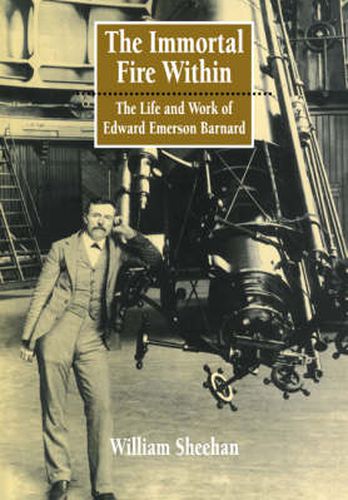Readings Newsletter
Become a Readings Member to make your shopping experience even easier.
Sign in or sign up for free!
You’re not far away from qualifying for FREE standard shipping within Australia
You’ve qualified for FREE standard shipping within Australia
The cart is loading…






This full-length biography of Edward Emerson Barnard, tells the remarkable tale of endurance and achievement of one of the leading astronomers of the late nineteenth and early twentieth centuries. As a ‘man who was never known to sleep’, Barnard scoured the heavens endlessly, leaving an astonishing legacy of observations - of planets, satellites, comets, double stars, bright and dark nebulae and globular clusters - that make him one of the greatest observers of all time. This book traces Barnard’s life from poverty to international recognition. We are told how he grew up fatherless and in hardship during the American Civil War; that he later acquired a small telescope and discovered so many comets that, despite his lack of formal education, he won a position at the Lick Observatory, California. His success as a professional astronomer then unfolds, and we are told, in particular, how he discovered the fifth satellite of Jupiter and pioneered wide-angle photography of comets and the Milky Way.
$9.00 standard shipping within Australia
FREE standard shipping within Australia for orders over $100.00
Express & International shipping calculated at checkout
This full-length biography of Edward Emerson Barnard, tells the remarkable tale of endurance and achievement of one of the leading astronomers of the late nineteenth and early twentieth centuries. As a ‘man who was never known to sleep’, Barnard scoured the heavens endlessly, leaving an astonishing legacy of observations - of planets, satellites, comets, double stars, bright and dark nebulae and globular clusters - that make him one of the greatest observers of all time. This book traces Barnard’s life from poverty to international recognition. We are told how he grew up fatherless and in hardship during the American Civil War; that he later acquired a small telescope and discovered so many comets that, despite his lack of formal education, he won a position at the Lick Observatory, California. His success as a professional astronomer then unfolds, and we are told, in particular, how he discovered the fifth satellite of Jupiter and pioneered wide-angle photography of comets and the Milky Way.